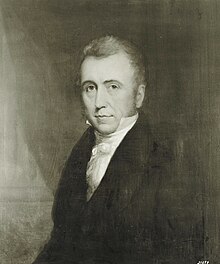Marcus Morton | |
|---|---|
 | |
| 16th & 18th Governor of Massachusetts | |
| In office January 17, 1843 – January 9, 1844 | |
| Lieutenant | Henry H. Childs |
| Preceded by | John Davis |
| Succeeded by | George N. Briggs |
| In office January 18, 1840 – January 7, 1841 | |
| Lieutenant | George Hull |
| Preceded by | Edward Everett |
| Succeeded by | John Davis |
| In office Acting: February 6, 1825 – May 26, 1825 | |
| Preceded by | William Eustis |
| Succeeded by | Levi Lincoln Jr. |
| 12th Lieutenant Governor of Massachusetts | |
| In office May 31, 1824 – May 26, 1825 | |
| Governor | William Eustis (1824–1825) Himself (1825) |
| Preceded by | Levi Lincoln Jr. |
| Succeeded by | Thomas L. Winthrop |
| Associate Justice of the Massachusetts Supreme Judicial Court | |
| In office 1825–1840 | |
| Appointed by | Levi Lincoln Jr. |
| Preceded by | Levi Lincoln Jr. |
| Succeeded by | Theron Metcalf (1848) |
| Member of the U.S. House of Representatives from Massachusetts's 10th district | |
| In office March 4, 1817 – March 3, 1821 | |
| Preceded by | Laban Wheaton |
| Succeeded by | Francis Baylies |
| Personal details | |
| Born | February 19, 1784 or December 19, 1784 East Freetown, Massachusetts |
| Died | February 6, 1864 (aged 79) Taunton, Massachusetts |
| Political party | Democratic-Republican Democratic Free Soil |
| Spouse | Charlotte Hodges |
| Children | Marcus Morton Nathaniel Morton |
| Alma mater | Brown University |
| Profession | Lawyer |
| Signature | |
Marcus Morton (1784 – February 6, 1864) was an American lawyer, jurist, and politician from Taunton, Massachusetts. He served two terms as the governor of Massachusetts and several months as Acting Governor following the death in 1825 of William Eustis. He served for 15 years as an associate justice of the Massachusetts Supreme Judicial Court, all the while running unsuccessfully as a Democrat for governor. He finally won the 1839 election, acquiring exactly the number of votes required for a majority win over Edward Everett. After losing the 1840 and 1841 elections, he was elected in a narrow victory in 1842.
The Massachusetts Democratic Party was highly factionalized, which contributed to Morton's long string of defeats. His brief periods of ascendancy, however, resulted in no substantive Democratic-supported reforms, since the dominant Whigs reversed most of the changes enacted during his terms. An opponent of the extension of slavery, he split with longtime friend John C. Calhoun over that issue, and eventually left the party for the Free Soil movement. He was considered by Martin Van Buren as a potential vice presidential running mate in 1848.